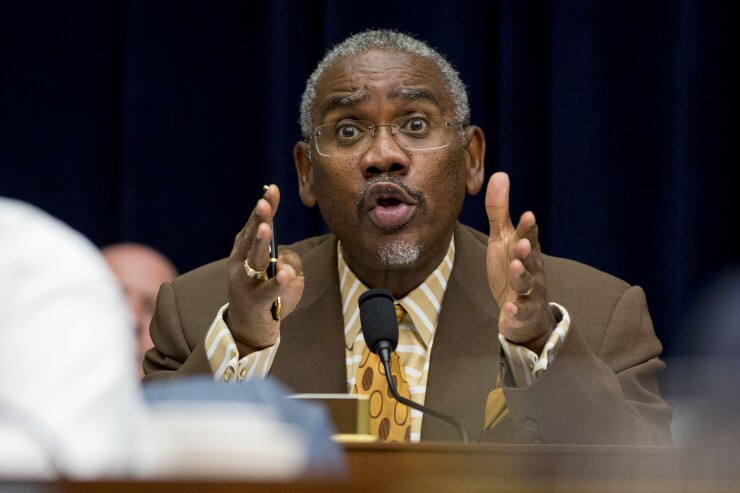WASHINGTON — House Democrats on Wednesday hammered the Trump administration's acting director of the Consumer Financial Protection Bureau for ignoring what they view as the agency's core purpose.
Much of Mulvaney's first appearance this week in two days of hearing focused on the bureau's lack of new enforcement actions in his nearly five months on the job.
Mulvaney told the House Financial Services Committee that the agency has about 100 ongoing investigations into financial firms and 25 that have proceeded to litigation. But that did not appease Democrats who said those investigations were started under former CFPB Director Richard Cordray, under whom the agency would often publicize at least one enforcement action per week.

“Basically, we have a bureau that refuses to take any new actions, refuses to punish anyone for violating any existing rules, and refuses to provide tangible help to American consumers,” said Rep. Carolyn Maloney, D-N.Y. “I am deeply disappointed that we have essentially taken the cop off the beat in terms of initiating new actions to help consumers, not just following up on your predecessor.”
Mulvaney said he “wouldn’t be aware” of new investigations since, he said, those are commenced in "the field" and "not checked off by me.” He added that of 25 previous investigations that reached litigation, he has dismissed only one.
“I could stop all 100 investigations that are going on right now and we’ve chosen not to do that because we are still enforcing the law,” Mulvaney said. “We are just doing it differently and with more restraint than the previous leadership was doing.”
But in addition to defending his enforcement credentials, Mulvaney maintained his criticism of the bureau's structure, saying, for example, that Congress should have more say on the CFPB's spending. The current regulatory relief bill pending in Congress would not touch the CFPB's structure, but House Republicans say they would back structural reforms.
“Why not have the opportunity to at least bring me in and ask me how I’m spending money?” he said.
Mulvaney will likely have to ramp up his defense as he testifies Thursday before the Senate Banking Committee and Sen. Elizabeth Warren, D-Mass., the CFPB's architect and the most vocal critic of the acting director.
House Democrats also repeatedly raised concerns about potential conflicts with Mulvaney currently serving dual roles, running the CFPB and as director of the Office of Management and Budget, and his well-known opposition to the CFPB when he served in Congress.
“I don’t know many people that work two full-time jobs and do both of them in an exemplary manner,” said Rep. Gregory Meeks, D-N.Y.
“You said, to be perfectly honest, you didn’t like the fact that the CFPB exists,” said Meeks, referring to comments Mulvaney made while serving in the House.
Meeks suggested that the tone Mulvaney has set leading the agency reflects Republicans' desire to see it go away.
“The best way to get rid of the bureau would be to take it over” and “stop doing what it does, … so you stop then doing investigations, you stop doing enforcement, you stop doing the kinds of things that the bureau was put into business creation to do,” Meeks said.
But Mulvaney was adamant that the agency has not ceased investigations and said his perspective of the CFPB has improved after having worked with the agency's staff.
Still, he pleaded with lawmakers to consider legislation that would create a commission at the agency, rather than a single director, and have the CFPB subject to congressional appropriations — something Republicans have long pursued to no avail.
“I say this as somebody who used to sit where y’all sit: Why y’all don’t want to put me on appropriations, I just don’t get it. I really don’t,” Mulvaney said.
After Senate passage last month of the bipartisan reg relief bill sponsored by Senate Banking Committee Chairman Mike Crapo, R-Idaho, which did not include changes to the CFPB, House GOP leaders have said they would like to see a final package go further — with more substantive regulatory reforms.
While expanding the bill could force Senate Democrats to walk away from a deal, House Financial Services Committee Chairman Jeb Hensarling, R-Texas, said he still supported CFPB reforms.
“The good news is we have an acting director before us today who is actually asking our assistance in reforming the CFPB,” said Hensarling. “If our Democrat colleagues wish for the bureau to be accountable and responsive, please work with us to ensure we do just that.”





